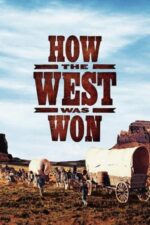Imagine this: a colorful array of mobile homes, hitched up and ready to embark on a journey into the unknown. They're called caravans - rolling wonders that have been part of our cinematic landscape for decades. From slapstick comedies to suspenseful dramas, these mobile communities provide an intriguing backdrop against which we explore themes of community, identity, and the human spirit's unrelenting drive to wander.
Take 'Carry On Behind', for instance. It's a rollicking comedy that unfolds at a bustling caravan site in the British countryside. The professors, Vrooshka and Crump, find themselves amidst a motley crew of eccentrics - from a flirtatious Major who owns the land to a snooty mother. As they delve into their archaeological research, the caravan becomes not just a location but a character in its own right. The vibrant atmosphere is punctuated with humorous innuendos and unexpected twists, reminding us that even our most mundane spaces can harbor extraordinary adventures.
In 'Taxi, Trailer and Bullfight', we see the caravan as an unlikely setting for a thrilling heist caper. As a dysfunctional family vacationing in Spain crosses paths with cunning diamond thieves, their caravan becomes a mobile stage for mistaken identities, hilarious misunderstandings, and suspenseful chase sequences. The film masterfully balances humor with tension, showing us that sometimes the most exciting stories unfold not on grand stages but within the confines of a rolling home away from home.
In contrast, 'Noise' presents a caravan as a symbol of isolation amidst community. Set against the backdrop of a devastating train incident, it tells the story of a young police officer grappling with personal struggles while investigating the case. The caravan serves not only as his temporary home but also as a metaphor for the emotional isolation he experiences. As other characters struggle with their own trauma, the film explores themes of loss, guilt, and human resilience against the backdrop of a seemingly ordinary mobile abode.
'How the West Was Won' takes us on an epic journey across the American frontier through the lens of an ordinary pioneer family. Their story unfolds against the vast panorama of the westward expansion, from the 1830s until the close of the 19th century. This sweeping drama weaves intimate stories of love, loss, and resilience into the broader narrative of nation-building, painting a poignant portrait of ordinary individuals caught up in extraordinary times.
'Wagon Master' presents caravans in a more traditional sense - wagons carrying pioneers through rugged landscapes. Here, they symbolize not only mobility but also the challenges faced by those venturing into uncharted territories. From encountering the ruthless Clegg gang to finding solace with the Navajo tribe, this period adventure underscores how caravans have been more than just transportation devices; they've been platforms for human interactions and cultural exchanges.
Lastly, 'Life Is Sweet' uses caravans as a backdrop to explore the complexities of family dynamics. Set in a suburban landscape outside London, it follows Wendy, Andy, and their twins as they navigate life's challenges within the confines of their caravan home. The film delicately captures the warmth of familial bonds alongside the friction that arises from contrasting personalities and aspirations. Through the lens of this quirky family's daily lives, we witness their collective growth against the backdrop of their mobile home, a testament to the enduring spirit of resilience and love.
In each of these films, caravans serve as more than just movable dwellings; they become microcosms of human experience. They symbolize our innate desire for adventure, our need for connection, and our ability to transform even the most mundane spaces into arenas of extraordinary experiences. From slapstick comedies to dramatic thrillers, caravans offer a rich tapestry upon which we can explore themes of identity, community, and the human spirit's indomitable will to wander.






























